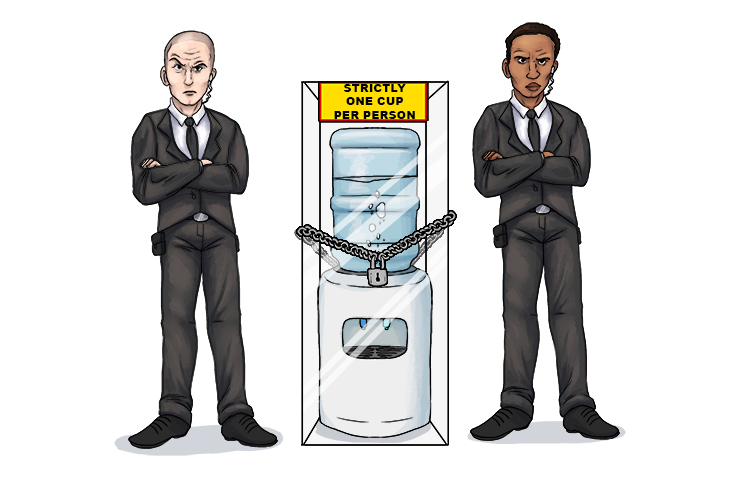Water Conservation – The preservation, control and development of water resources, both surface and groundwater, and prevention of pollution
To remember the meaning of the term Water Conservation, use the following mnemonic:
The water needs control and preservation (water conservation) otherwise we will run out of it.

Water conservation includes all the policies, strategies and activities that are aimed at managing the natural resource of fresh water sustainably.
Factors such as increases in populations and climate change have put more pressure on natural water resources, especially in manufacturing and agricultural irrigation.
Many countries have implemented policies aimed at water conservation, with much success, but many low-income countries are yet to formulate robust policies and strategies.
The aims of water conservation include:
- Safeguarding the availability of water for future generations by ensuring the withdrawal of water from an ecosystem does not exceed its natural replacement rate.
- Energy conservation, as water pumping, delivery and wastewater treatment consume a large amount of energy.
- Habitat conservation – minimising human water usage helps to preserve freshwater habitats for local wildlife and migrating waterfowl.
Strategies in water conservation include rainwater harvesting. This involves digging ponds, lakes or canals to expand the water resource, and installing rainwater-catching ducts and filtration systems on homes and other buildings.




